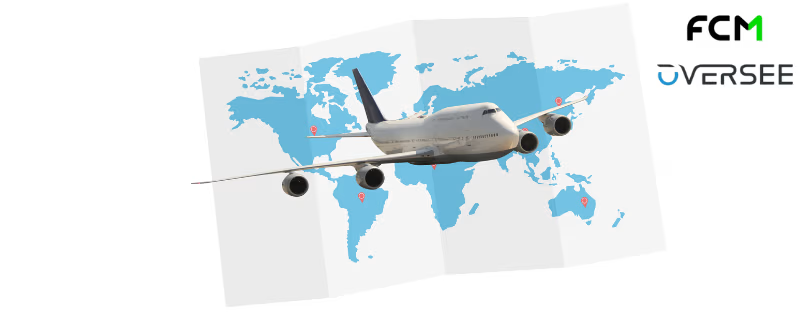
What is travel technology?
Travel technology has revolutionized the way we plan and book our travels. From online booking systems to travel analytics, the use of technology has significantly improved the travel experience for many. In this blog post, we will explore what travel technology is, its uses, and who uses it.
We will also delve into some examples of travel technology, such as mobile travel apps and virtual reality in travel, and how they are shaping the industry.
What is travel technology?
Travel technology refers to the application of technology to the travel industry, with the aim of improving and enhancing the travel experience for both travelers and travel companies. The use of technology in travel has revolutionized the industry, providing travelers with more convenient and personalized services and helping travel companies improve efficiency and increase profitability.
Travel technology includes a wide range of applications, including online booking systems, mobile travel apps, travel management software, travel analytics, virtual reality in travel, artificial intelligence in travel, global distribution systems, travel chatbots, e-commerce in travel, and payment gateways for travel.
1. Online Booking Systems
Online booking systems have become an integral part of the travel industry. These systems allow travelers to book flights, hotels, and other travel-related services online. The use of online booking systems has significantly reduced the time and effort required to book travel, making it more convenient for travelers.
The use of online booking systems has also allowed travel companies to reach a wider audience, as they can now offer their services online to customers worldwide. This has resulted in increased competition in the travel industry. Travel companies are constantly looking for ways to improve their online booking systems to provide better customer experiences.
2. Mobile Travel Apps
Mobile travel apps have become increasingly popular in recent years. These apps allow travelers to plan and book their trips on the go, making it easier for them to access important travel information, such as flight schedules and hotel reservations. Mobile travel apps also offer features such as real-time flight tracking, travel recommendations, and local weather updates.
Mobile travel apps have made it easier for travelers to navigate unfamiliar destinations and discover new experiences. They have also made it easier for travel companies to connect with their customers and provide personalized recommendations and services.
3. Travel Management Software
Travel management software is used by travel agencies and companies to manage their travel-related operations. This software includes features such as expense management, travel booking, and itinerary planning. Travel management software helps streamline travel-related processes and improve efficiency.
Travel management software has become increasingly important as more companies look to manage their travel-related expenses and operations. This software helps companies save time and money by automating processes and providing real-time visibility into their travel-related activities.
4. Travel Analytics
Travel analytics refers to the use of data analytics to gain insights into traveler behavior, preferences, and trends. The use of travel analytics helps travel companies better understand their customers, and tailor their services to meet their needs. Travel analytics can also be used to predict travel demand and optimize pricing strategies.
Travel analytics has become increasingly important as travel companies look to provide more personalized and targeted services to their customers. By analyzing customer data, travel companies can identify trends and patterns that help them better understand their customers’ needs and preferences.
5. Virtual Reality in Travel
Virtual reality (VR) technology has become increasingly popular in the travel industry. VR allows travelers to experience destinations and attractions in a fully immersive way, without ever leaving their homes. Travel companies use VR technology to create virtual tours of destinations, hotels, and attractions. Furthermore, VR technology plays a crucial role in the design and planning of new travel experiences.
Virtual reality in travel has opened up new possibilities for travel companies, as they can now offer virtual tours of destinations and attractions to customers worldwide. VR technology also allows travel companies to showcase their services more engagingly and interactively, providing a more immersive experience for customers.
6. Artificial Intelligence in Travel
Artificial intelligence (AI) is being used in various ways in the travel industry. AI is used to power travel chatbots, which are automated assistants that can help customers with travel-related queries and provide personalized recommendations. AI is also used to analyze customer data and optimize pricing strategies, as well as to automate processes and improve efficiency.
The use of AI in travel has helped travel companies provide more personalized and efficient services to their customers. AI-powered chatbots can provide 24/7 support to customers, answering their queries in real time and providing personalized recommendations. AI can also help travel companies optimize their pricing strategies by analyzing customer data and predicting demand.
7. Global Distribution Systems
Global distribution systems (GDS) are computer networks used by travel companies to manage their bookings and reservations. GDS connect travel companies with travel agents and other travel-related businesses, allowing them to share information and bookings.
GDS has become an important tool for travel companies, as they provide access to a wide range of travel-related services and information. They also help travel companies manage their bookings and reservations more efficiently by automating processes and providing real-time updates.
8. Travel Chatbots
Travel chatbots are automated assistants that use AI to provide personalized recommendations and answer customer queries in real-time. TraveI chatbots are available 24/7 and can handle multiple queries simultaneously, making them a valuable tool for travel companies looking to provide efficient and personalized customer support.
Travel chatbots have become increasingly popular in recent years, as they help travel companies provide more efficient and personalized customer support. They can handle a wide range of queries, from flight schedules and hotel reservations to restaurant recommendations and local weather updates.
9. E-commerce in Travel
E-commerce has become an important part of the travel industry, as more travelers are turning to online platforms to book their travel-related services. Online commerce in travel includes online booking systems, mobile travel apps, and other online platforms that allow travelers to book and pay for travel-related services online.
E-commerce in travel has made it easier for travelers to book their travel-related services online, from anywhere in the world. It has also opened up new opportunities for travel companies, as they can now offer their services to customers worldwide.
10. Payment Gateways for Travel
Payment gateways for travel are online platforms that allow travelers to pay for their travel-related services online. Pay processors provide a secure and efficient way for travelers to make payments online, using a wide range of payment methods.
Payment gateways for travel have become an important tool for travel companies, as they allow them to offer a wide range of payment options to their customers. They also help travel companies process payments more efficiently, by automating processes and providing real-time updates.
Benefits of Travel Technology
Travel technology has a number of benefits for both travelers and businesses in the travel industry.
For travelers, travel technology makes it easier, faster, and more convenient to plan and book their trips. It also allows travelers to compare prices and find the best deals on flights, hotels, and other travel arrangements. Additionally, travel technology can help travelers save money on their trips by providing them with access to discounts and promotions.
For businesses in the travel industry, travel technology can help them improve their efficiency and reduce costs. It can also help them reach a wider audience of travelers and increase their sales. Additionally, travel technology can help businesses provide a better customer experience by making it easier for travelers to book their trips and get the information they need.
Conclusion: What is travel technology?
In conclusion, travel technology has revolutionized the travel industry, providing travelers with more convenient and personalized services, and helping travel companies improve efficiency and increase profitability. From online booking systems to travel chatbots, the use of technology has transformed the way we plan and book our travels.
Amadeus, Sabre, Travelport, Expedia Group, Booking Holdings, Agoda, Airbnb, Kayak, TripAdvisor, and Trip.com are just some of the players in the travel technology industry providing various solutions and products to the global travel market.
As technology continues to advance, we can expect to see even more innovative travel technologies that enhance the travel experience for everyone. And we are looking forward to it!












